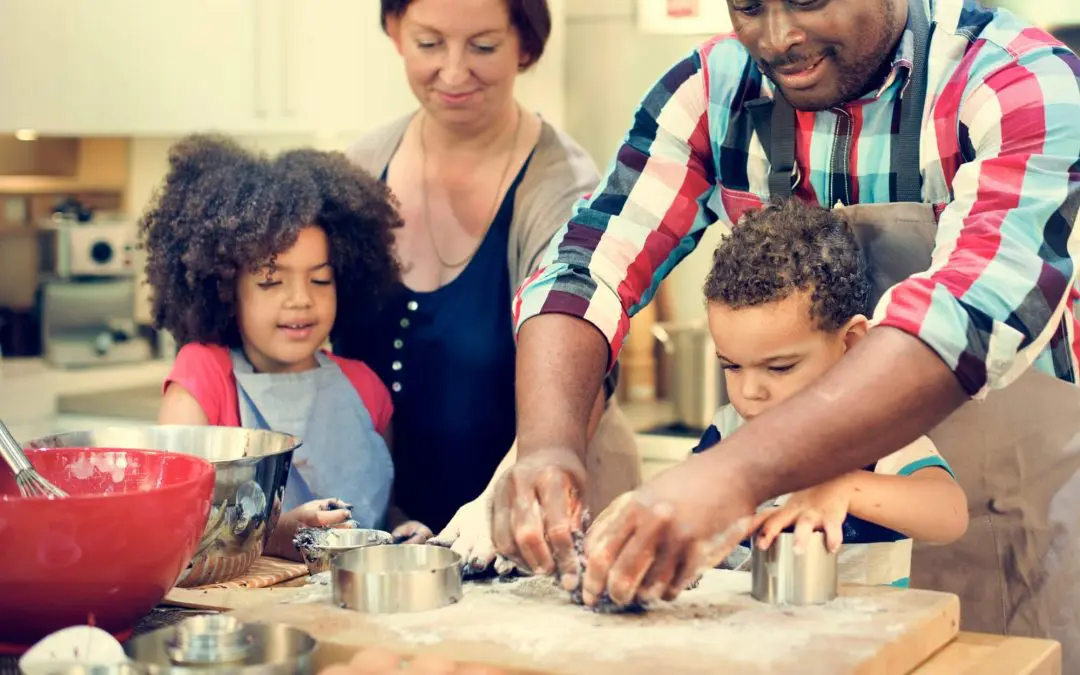The kitchen is the heart of every home, where families gather to eat breakfast and cook dinner. However, it is also a place where accidents can happen if proper safety measures are not followed. To ensure a hazard-free cooking experience, here are some essential kitchen safety tips to remember.
1. First Tip for Kitchen Safety: Keep it Clean
A clean kitchen is generally more safe. Regularly clean countertops, stovetops, and appliances to prevent the buildup of grease and food particles. This reduces the risk of accidents and promotes a hygienic cooking environment.
2. Proper Storage
Store knives and other sharp objects in designated areas, away from the reach of children. Use childproof locks on cabinets containing cleaning supplies or potentially harmful items. Proper storage helps prevent accidents and keeps the kitchen organized.
3. Fire Safety
Be vigilant when cooking with open flames. Keep flammable items like oven mitts and paper towels away from the stove. Install a smoke detector in or near the kitchen, and have a fire extinguisher on hand. In case of a grease fire, never use water; use a fire extinguisher or cover the flames with a metal lid.
4. Correct Appliance Usage is Critical for Kitchen Safety
Follow the manufacturer’s instructions for all kitchen appliances. Ensure that electrical cords are in good condition and never overload power outlets. Regularly inspect appliances for any signs of wear or malfunction and replace or repair them as needed.
5. Safe Handling of Knives
Always use sharp knives, as dull blades can be more dangerous. Practice proper knife-handling techniques, such as the claw grip, to reduce the risk of cuts. Store knives in a knife block or magnetic strip when not in use.
6. Prevent Slips
Keep the kitchen floor dry to prevent slips and falls. Clean up spills immediately, and use non-slip mats near sinks and stoves. Ensure that electrical cords are neatly organized to avoid tripping hazards.
7. Monitor Cooking
Never leave cooking food unattended. Use a timer to remind yourself when food is ready, especially for items in the oven. This not only prevents overcooking but also reduces the risk of kitchen fires.
8. Safe Food Handling
Practice proper food safety measures, including washing hands before handling food, separating raw and cooked items, and cooking food to the recommended internal temperatures. This helps prevent foodborne illnesses.
9. Child Safety
If you have children, create a designated safe area for them away from the stove and other potentially hazardous areas. Educate them about kitchen safety rules and the importance of not playing with kitchen appliances.
10. First Aid Knowledge is an Essential Part of Kitchen Safety
Be familiar with basic first aid procedures, especially for burns and cuts. Have a well-stocked first aid kit in the kitchen, and know how to treat minor injuries.
By incorporating these kitchen safety tips into your daily routine, you can create a secure and enjoyable cooking environment for yourself and your loved ones. Remember, a little caution goes a long way in preventing accidents and ensuring that your kitchen remains a place of joy and creativity.
FAQ Section: Advanced Kitchen Safety Tips
Q: Are there specific recommendations for safely handling hot surfaces in the kitchen?
A: Yes, when dealing with hot surfaces, it’s crucial to use oven mitts and avoid placing flammable items nearby. Additionally, always keep a clear path around stovetops and oven doors to prevent accidental burns.
Q: How can one enhance kitchen safety when using small kitchen appliances?
A: To ensure safety with small appliances, like toasters or blenders, unplug them when not in use, and avoid using damaged cords. Regularly check for any signs of wear, and if necessary, replace or repair the appliances promptly.
Q: What steps can be taken to maintain ventilation and air quality in the kitchen for safety?
A: To enhance ventilation, use exhaust fans or open windows when cooking to reduce the risk of inhaling cooking fumes. Keeping the kitchen well-ventilated contributes to a healthier and safer cooking environment.
Q: Is there a recommended way to organize pots, pans, and other cookware to prevent accidents?
A: Organize cookware based on frequency of use, with frequently used items easily accessible. Avoid overloading cabinets, as overcrowded spaces can lead to accidental falls and injuries when reaching for items.
Q: Are there specific guidelines for handling hot liquids in the kitchen?
A: When working with hot liquids, use caution to prevent spills. Pour liquids away from you, and handle hot pots and pans with sturdy oven mitts to minimize the risk of burns.
Choose TUFF Home Inspections for thorough and reliable inspection services. Contact us to schedule your appointment and gain valuable insights into the condition of your property.

